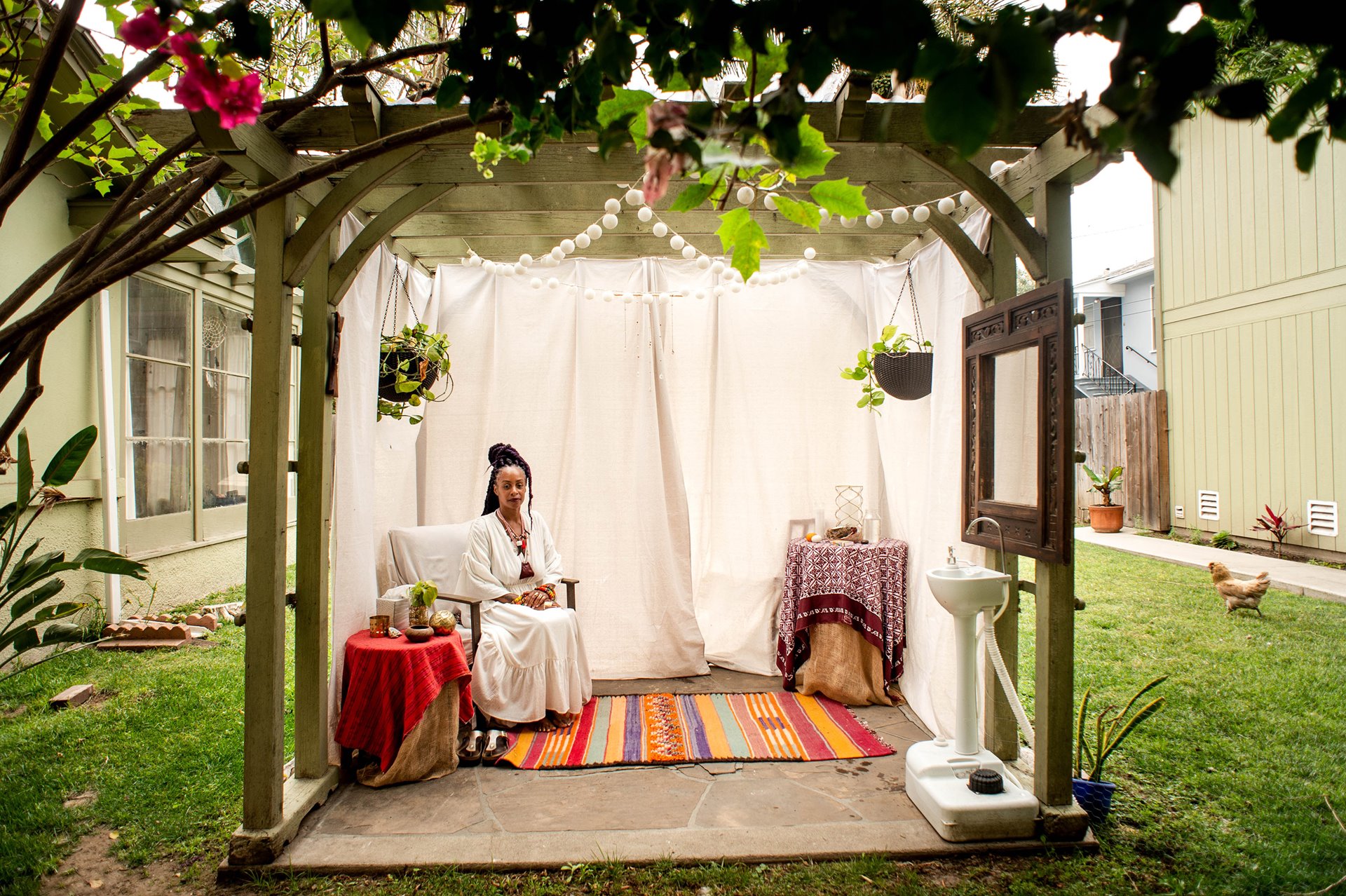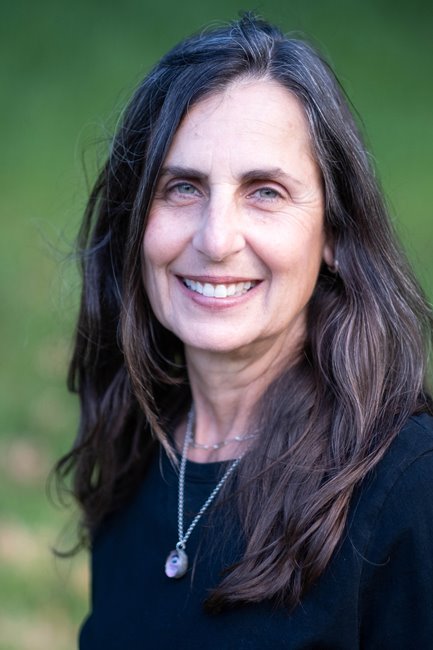Midwife Racha Tahani Lawler sits in the space in her garden where she meets with clients, in Los Angeles County, USA. Lawler once owned a community birth center, but without medical insurance covering midwifery found it to be difficult to sustain and now assists at home births.
Black women in the US can find it hard to trust the medical establishment because of their experience of a deep-running culture of racism, which may affect their access to care and the level of care they receive when seeking medical treatment. A study published in The Public Health Advocate found that quality of care was affected by Black women’s experiences of being doubted and dismissed by doctors, being patronized and disrespected, and having their knowledge about their own medical conditions ignored. In addition, many Black women feel they are having unnecessary Cesarean sections (c-sections) when giving birth. To avoid sometimes unnecessary medical intervention, some women choose to center their birth-plans around midwives. This project tells the story of Aysha-Samon Stokes, who found a Black midwife in her third trimester and gave birth to a healthy baby boy on Mother’s Day at a South Los Angeles Birthing Center.
In 2020, Black women had the highest rate of c-sections nationally: 36.3 percent, compared with an average of 31.8 percent, according to the US National Center for Health Statistics (NCHS). Mortality rates of Black women from perinatal complications are also notably higher than for white women, according to the NCHS. According to data supplied by County of Los Angeles Public Health, Black babies in the county are more than three times as likely to die before their first birthdays than their white counterparts. Historically, reasons given for such disparities in health outcomes included economic disadvantage and lack of education. However, recent studies by the US Centers for Disease Control and Prevention point instead to various barriers to healthcare for Black mothers, such as delayed access to prenatal care.

